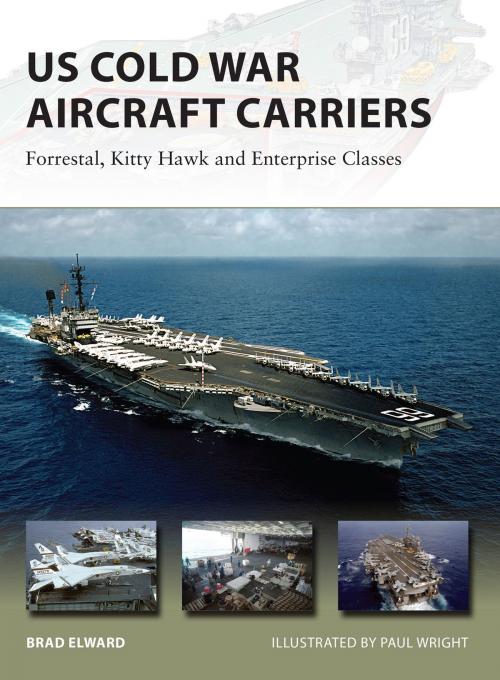US Cold War Aircraft Carriers
Forrestal, Kitty Hawk and Enterprise Classes
Nonfiction, History, Military, Weapons, Naval, United States| Author: | Brad Elward | ISBN: | 9781472807786 |
| Publisher: | Bloomsbury Publishing | Publication: | March 20, 2014 |
| Imprint: | Osprey Publishing | Language: | English |
| Author: | Brad Elward |
| ISBN: | 9781472807786 |
| Publisher: | Bloomsbury Publishing |
| Publication: | March 20, 2014 |
| Imprint: | Osprey Publishing |
| Language: | English |
The Forrestal class (Forrestal, Saratoga, Ranger, and Independence) was the first completed class of US Navy supercarriers, so-named for their 25 percent size increase over the World War II-era carriers such as the Midway class, and the strength of their air wings (80–100 aircraft, compared to 65–75 for the Midway, and fewer than 50 for the Essex class). Design-wise, the Forrestals were a huge improvement over their predecessors, being more stable and comfortable, while maintaining advancements such as the armored flight decks that had been introduced with the Midway. The Kitty Hawk class was an improvement on the Forrestal-class designs, and four were built in the 1960s – Kitty Hawk, Constellation, America and John F. Kennedy. These were even longer than the Forrestals, and fitted with advanced defensive weapons systems and an improved elevator layout. All nine of the carriers covered by this volume are icons, and hold a much-respected place in US naval history. They are also some of the more well-known vessels outside of the military, for their long service histories, as well as for some of the more unfortunate events that seem to follow them.
The Forrestal class (Forrestal, Saratoga, Ranger, and Independence) was the first completed class of US Navy supercarriers, so-named for their 25 percent size increase over the World War II-era carriers such as the Midway class, and the strength of their air wings (80–100 aircraft, compared to 65–75 for the Midway, and fewer than 50 for the Essex class). Design-wise, the Forrestals were a huge improvement over their predecessors, being more stable and comfortable, while maintaining advancements such as the armored flight decks that had been introduced with the Midway. The Kitty Hawk class was an improvement on the Forrestal-class designs, and four were built in the 1960s – Kitty Hawk, Constellation, America and John F. Kennedy. These were even longer than the Forrestals, and fitted with advanced defensive weapons systems and an improved elevator layout. All nine of the carriers covered by this volume are icons, and hold a much-respected place in US naval history. They are also some of the more well-known vessels outside of the military, for their long service histories, as well as for some of the more unfortunate events that seem to follow them.















